Data Flood

How can we improve flood forecasting and early warning systems ?
Improving flood forecasting and early warning systems is essential for mitigating the devastating impacts of floods on human lives, properties, and ecosystems. Some strategies to enhance these systems include investing in advanced technology such as satellite imagery, hydrological modeling, and data analytics; improving data collection and sharing through the installation of more gauges and sensors, collaboration with other agencies, and crowdsourcing data; enhancing communication and dissemination of information by establishing multi-channel warning systems, creating community-based warning networks, and providing clear and actionable information; conducting regular maintenance and testing of infrastructure and conducting drills and simulations; and engaging stakeholders and building partnerships with local communities, academic institutions, and international organizations.

How does climate change affect flood control strategies ?
Climate change significantly impacts flood control strategies by altering precipitation patterns, leading to more frequent and severe flooding. This requires adaptations in flood management approaches, including increased infrastructure resilience, ecosystem-based solutions, regulatory adjustments, early warning systems, and community engagement.
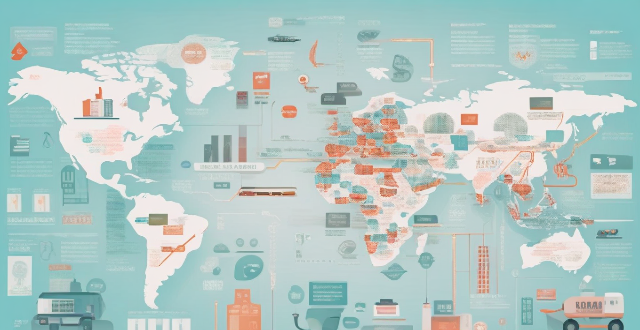
How do different countries approach flood control and management ?
Flood control and management strategies vary across different countries, influenced by factors such as geographic location, climate conditions, economic resources, and technological advancements. The United States relies on early warning systems, flood insurance programs, and floodplain zoning regulations. The Netherlands invests in flood barriers and dikes, water management policies, and international cooperation. China focuses on the Three Gorges Dam, flood prevention campaigns, and reforestation efforts. India adopts community-based approaches, integrated water resource management, and disaster risk reduction programs.
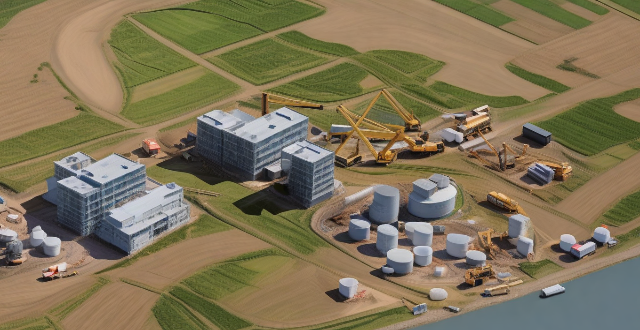
What are the most effective flood control measures ?
Effective flood control measures include both structural and non-structural approaches. Structural measures involve the construction of physical barriers such as dams, levees, embankments, dikes, seawalls, floodwalls, and floodgates to prevent or contain floodwaters. Non-structural measures include flood forecasting, early warning systems, land use planning, floodproofing, elevation, flood insurance, financial aid, public awareness campaigns, community drills, volunteer programs, and neighborhood watch programs. These measures work together to mitigate the risks and impacts of flooding, protecting lives and property.
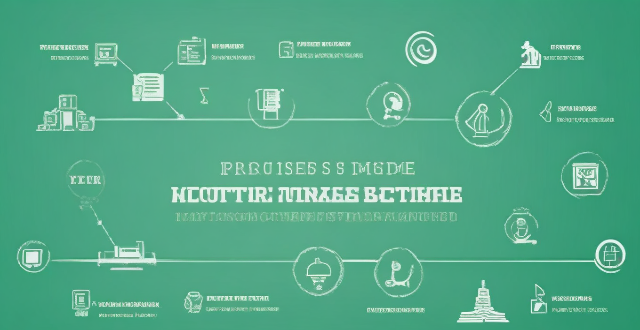
What are some innovative solutions for flood prevention and management ?
The provided text discusses innovative solutions for flood prevention and management, highlighting various strategies such as early warning systems, green infrastructure, smart water management systems, flood barriers and walls, and community engagement and education. Each strategy is briefly explained, emphasizing its key features and benefits in mitigating the impact of floods on lives and property. The conclusion emphasizes the importance of considering local conditions and needs when selecting appropriate measures for effective flood prevention and management.

What is the importance of wetlands in flood mitigation ?
The text discusses the importance of wetlands in flood mitigation. It highlights their roles as natural reservoirs that store excess water, stabilize soils to prevent erosion, and provide habitat for flood-tolerant species. The article also mentions the benefits of wetlands for human communities, including reduced property damage, improved water quality, and recreational opportunities. Overall, it emphasizes the need to protect and restore wetlands for their crucial role in maintaining a healthy and resilient ecosystem.
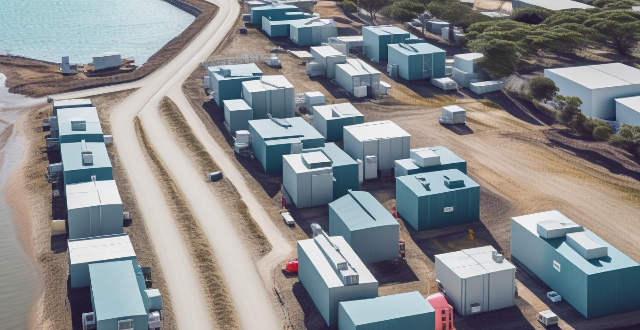
What role do dams play in flood control ?
Dams are crucial for flood control, providing storageDams are crucial for flood control, providing storage reduction, community preparedness, providing storage, flow regulation, risk reduction, community preparedness, ecological health support, and integrated water resource management.

What role do wetlands play in water purification and flood control ?
In summary, wetlands are crucial ecosystems that play a vital role in water purification and flood control. They act as natural filters, removing sediments, nutrients, and pollutants from water while also providing buffering capacity for floodwaters. By preserving and restoring wetlands, we can ensure clean water resources and minimize the risks associated with flooding.
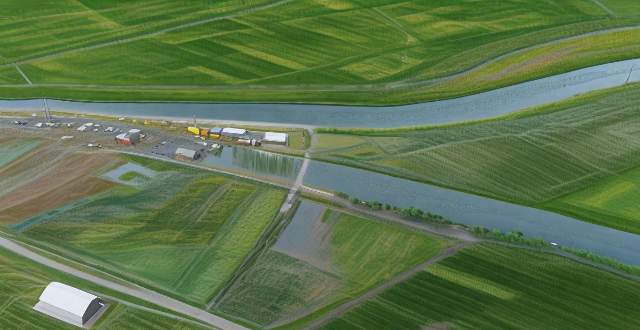
How can climate data analysis help in disaster risk reduction and management ?
Climate data analysis is crucial for disaster risk reduction and management. It helps identify high-risk areas, predict future weather patterns, develop mitigation strategies, and enhance disaster response and recovery efforts. By analyzing past and current climate data, we can better prepare for and respond to natural disasters such as floods, hurricanes, wildfires, and droughts.

How can climate data analysis inform sustainable development goals and practices ?
**Summary:** Climate data analysis is crucial for understanding environmental systems and shaping sustainable development goals (SDGs) and practices. It helps identify trends, inform policy decisions, assess environmental impacts, and guide sustainable agriculture, urban planning, and disaster risk reduction. By integrating climate data into development frameworks, we can ensure that current actions do not compromise future generations' ability to meet their needs and aspirations.

How can we prevent flooding in urban areas ?
Flooding in urban areas is a pressing issue that calls for multifaceted solutions. The strategies include enhancing infrastructure resilience through green infrastructure development, improved drainage systems, and structural flood protection measures. Risk management and early warning systems are also crucial, encompassing risk assessment, community participation, hydrological monitoring, weather forecasting technology, and public alert systems. Emergency response plans involving evacuation routes, temporary shelters, and rescue services coordination further strengthen the overall approach. A combination of structural and non-structural strategies is recommended for effective adaptation to rising flood risks. Urban planners, engineers, and policymakers must collaborate to create cities that are resilient, safe, and capable of handling climate change's uncertainties.

What is data privacy ?
Data privacy is the protection of personal information from unauthorized use. It's important for individual rights, building trust, legal compliance, and risk mitigation. Principles include data minimization, anonymization, encryption, transparency, consent, access control, retention, integrity, and accountability. Best practices involve regular audits, employee training, updating policies, secure systems, and response plans for data breaches.
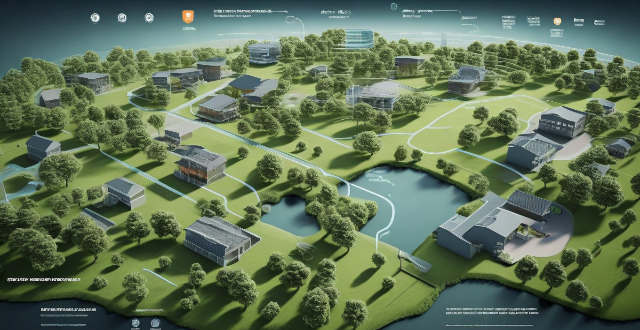
What role does technology play in improving environmental monitoring ?
Technology plays a pivotal role in enhancing environmental monitoring by enabling advanced data collection, analysis, visualization, reporting, and conservation efforts. Satellite imagery, drone surveillance, sensor networks, big data analytics, GIS, real-time reporting systems, and early warning technologies are among the key tools used. These advancements not only improve our understanding of environmental changes but also aid in managing resources and raising public awareness about ecological issues.

How does data encryption affect computer performance ?
Data encryption is crucial for securing data but can affect computer performance by increasing processor load, memory usage, disk I/O, network latency, and reducing battery life.
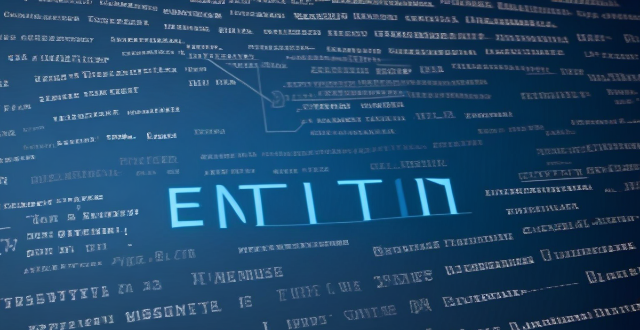
Why is data encryption important for online security ?
Data encryption is crucial for online security, protecting dataData encryption is crucial for online security, protecting data the financial impact of breaches It has evolved from ancient uses to a critical tool in today's digital landscape, with AI optimizing key management and enhancing algorithms.
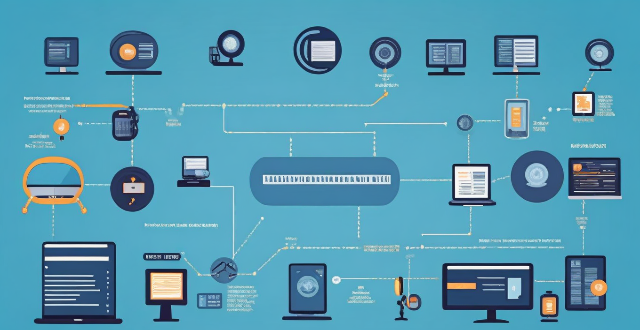
What are the benefits of having an unlimited data plan ?
An unlimited data plan offers benefits such as no data caps or overage charges, the ability to stream videos and music without worrying about data usage, using multiple devices simultaneously, working from anywhere, enjoying online gaming and social media, and better value for money.

How do data protection regulations handle sensitive personal data ?
Handling sensitive personal data under data protection regulations requires strict adherence to principles such as consent, minimization, purpose limitation, and security. Regulations like the GDPR in the EU, CCPA in the US, and PIPEDA in Canada impose specific conditions for processing sensitive information. Organizations must adopt best practices including assessment, privacy impact assessments, employee training, access controls, and monitoring to ensure compliance and protect individuals' privacy rights.

What are the economic impacts of floods and how can they be minimized ?
Floods have significant economic impacts on communities, affecting various sectors of the economy. Direct impacts include property damage, crop loss, and business disruption, while indirect impacts encompass job losses, population displacement, and economic downturns. To minimize these effects, strategies such as flood defense infrastructure, early warning systems, emergency plans, flood insurance, microfinance, land-use planning, building codes, public awareness campaigns, and capacity building are recommended. By adopting a comprehensive approach, communities can enhance their resilience and reduce the economic repercussions of flooding.
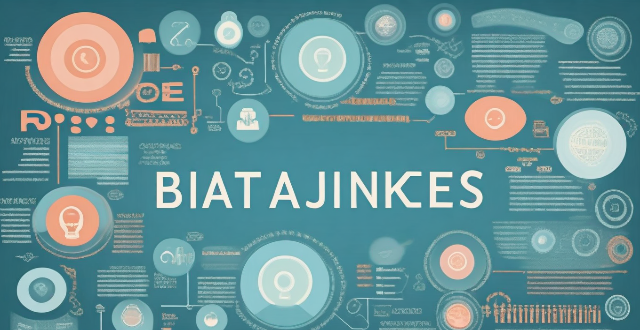
What is the difference between data privacy and data protection ?
The text discusses the difference between data privacy and data protection, emphasizing that understanding these concepts is crucial for managing personal information responsibly. Data privacy focuses on individual rights to control personal information, while data protection emphasizes organizational measures to safeguard that information. Both are essential for building trust and ensuring responsible data handling.

What role do data protection officers play under data protection laws ?
Data protection officers (DPOs) are crucial for ensuring compliance with data protection laws in organizations. They advise on compliance, develop policies, ensure adherence to regulations, educate stakeholders, and act as a point of contact for personal data requests.
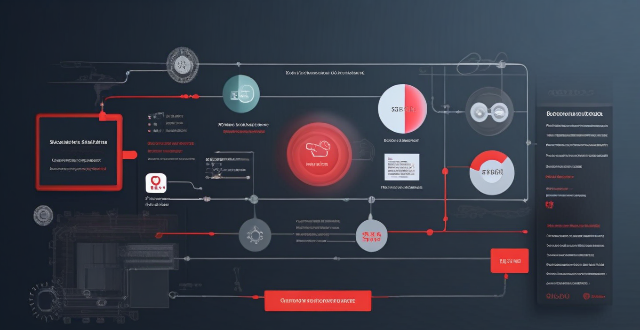
Can data encryption prevent data breaches and cyber attacks ?
Data encryption is a crucial security measure that can significantly reduce the risk of data breaches and cyber attacks by converting plain text into an unreadable format. However, it does not completely eliminate the risk of data breaches and cyber attacks. Encryption works through complex algorithms to scramble data so that it appears as random characters, requiring a secret key (or password) to decrypt the data back into its original form. There are two main types of encryption: symmetric and asymmetric. While encryption offers benefits such as confidentiality, integrity, authentication, and non-repudiation, it also has limitations including key management challenges, performance overhead, compatibility issues, human error, and advanced persistent threats (APTs). Therefore, organizations should implement other security measures such as firewalls, intrusion detection systems, regular security audits, and employee training programs to minimize the risk of cyber threats.
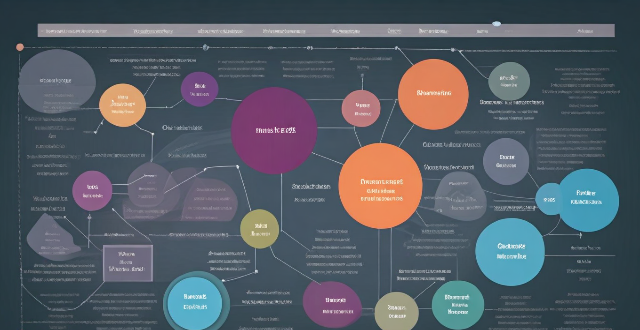
How do unlimited data plans differ from traditional data plans ?
Data plans are essential for internet usage, with unlimited and traditional data plans being the main types. Unlimited plans offer no data limits, predictable costs, and suit heavy users, while traditional plans have data limits, variable costs, and suit light users. The key differences include data limits, cost, and usage scenarios. Choosing the right plan depends on individual needs and usage patterns.

What is data encryption and how does it work ?
Data encryption is a crucial cybersecurity measure that transforms plaintext into ciphertext, protecting it from unauthorized access. It involves the use of complex algorithms and secret decryption keys. Encryption is significant for securing data at rest, in transit, and during processing, helping meet compliance requirements and reducing financial risks associated with data breaches. Its evolution includes historical precursors and wartime innovations, with AI expected to enhance its capabilities in the future.

What happens to my data during an iPhone repair ?
When you send your iPhone for repair, the repair center will take several steps to protect your data, including diagnostics, backup, data protection, testing, verification, and return of your device.

What are the rules regarding data breaches under data protection regulations ?
Data protection regulations have been established to ensure the confidentiality, integrity, and availability of personal data. These regulations set out specific rules regarding data breaches that must be followed by organizations that handle personal data. The key rules regarding data breaches under data protection regulations include notification of data breaches, mitigating their impact, record-keeping and reporting, penalties for non-compliance, and best practices for preventing data breaches. By adhering to these rules and implementing best practices, organizations can reduce the risk of data breaches and protect individuals' personal data.
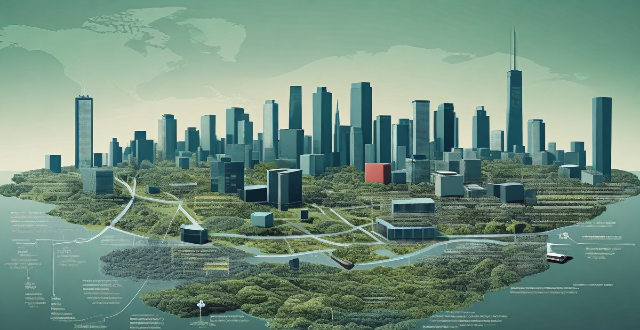
How do we analyze the data collected from environmental monitoring ?
Analyzing data from environmental monitoring involves several steps, including data cleaning, descriptive analysis, inferential statistics, time series and spatial analyses, multivariate techniques, and reporting findings. These steps help understand the current state of the environment and identify potential issues.
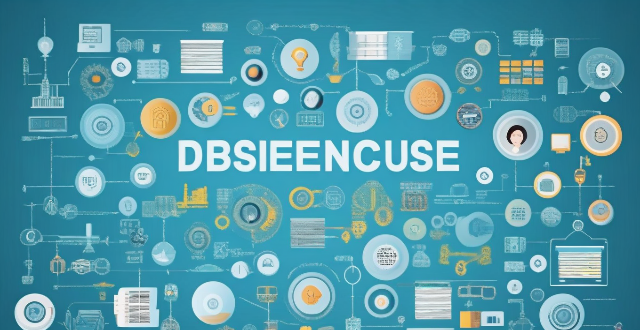
What are the consequences of a data breach ?
This text discusses the consequences of a data breach, including financial losses, loss of trust, reputation damage, and regulatory fines. It also highlights the long-term impact on business, legal implications, and personal impact such as identity theft and emotional distress. The text suggests mitigating measures such as implementing strong security measures, training employees, having a response plan, regularly updating systems, limiting access to sensitive data, backing up data, and insuring against data breaches.

Why is data privacy important ?
Data privacy is crucial in the digital age, protecting individuals and benefiting organizations. It ensures control over personal information, prevents misuse, and builds trust. Organizations mitigate risks, gain customer loyalty, and comply with laws by prioritizing data privacy. Key principles include transparency, individual control, data minimization, and security measures. Data privacy will continue to shape the relationship between individuals and technology, balancing innovation and privacy rights.

Can you explain the concept of 'data minimization' in data protection laws ?
Data minimization is a crucial principle in data protection laws that requires organizations to collect and process only the minimum amount of personal data necessary for specified, explicit, and legitimate purposes. This concept aims to protect individuals' privacy by limiting the potential harm that can result from the misuse or breach of their personal information. Key aspects of data minimization include collection limitation, purpose specification, data retention, data security, and accountability and transparency. Implementing robust security measures is crucial to ensure the confidentiality, integrity, and availability of personal data. Adhering to data minimization principles helps organizations comply with various data protection laws, fosters trust between individuals and organizations, reduces the risk of privacy breaches and violations, mitigates potential damage caused by cyberattacks or data breaches, and leads to cost savings for organizations due to reduced storage requirements and associated management costs.
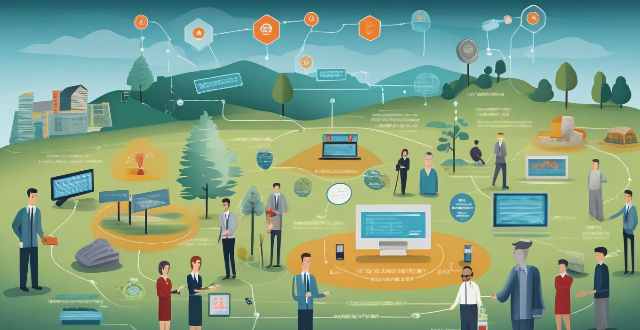
Can blockchain technology improve data security and privacy ?
Blockchain technology has been touted as a revolutionary tool that can improve data security and privacy. Its decentralized nature, encryption, and transparency make it difficult for attackers to compromise the network. Additionally, its anonymity, control over personal data, and smart contracts enhance privacy by giving individuals more control over their information.